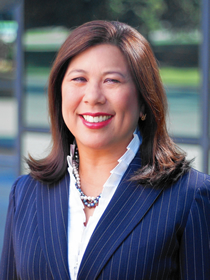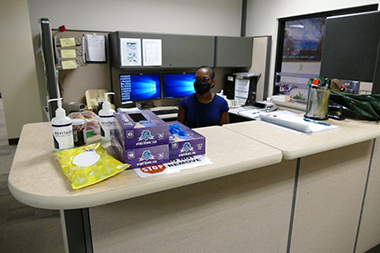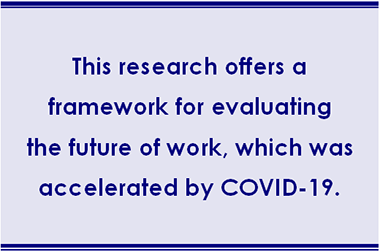You can also view this newsletter as a PDF.

Controller’s Team Keeps Government
Wheels Turning with Enhanced Worker Safety
 Workplace dynamics have fundamentally shifted in just five months as business, academic, nonprofit, and government leaders work to maintain critical functions while protecting their greatest resource: the people whose labor makes those functions possible.
Workplace dynamics have fundamentally shifted in just five months as business, academic, nonprofit, and government leaders work to maintain critical functions while protecting their greatest resource: the people whose labor makes those functions possible.
As chief fiscal officer of the world’s fifth-largest economy, Betty Yee and her team are responsible for providing essential government services that tens of millions of people depend on. The State Controller’s Office (SCO) receives an average of 8,400 claims for payment each day and distributes approximately 49 million payments each year including payroll for state government, courts, and California State Universities; retirement benefits; income tax refunds; and payments to thousands of local government entities, Medi-Cal providers, equipment vendors, service contractors, and more.
SCO leaders have stayed on top of public health and safety directives, adjusting workplace procedures with flexibility while ensuring payments and other important functions continue unabated. SCO implemented telework wherever possible to enable appropriate physical distancing for employees whose tasks must be performed onsite. Masks and gloves are available to staff and visitors who do not bring their own; enhanced cleaning protocols are in effect; and widespread signage reminds everyone of how to help keep one another healthy.
In this safety-enhanced environment, SCO team members continue performing hefty state government accounting, reporting, and auditing functions that are vital for public sector accountability and transparency. They also are continuing the state’s transition to a new financial and accounting software system called FI$Cal, having completed important steps to enable FI$Cal to run parallel to the old legacy system, preparing the state government for a full transition in 2021.
From May through mid-July, SCO accounting control staff worked with departments to wind down their budgets and reconcile balances, allowing for a clean transition to the new fiscal year that began July 1 – an incredibly time- and labor-intensive demonstration of teamwork requiring late nights and good humor.
The SCO team also endures in efforts to reunite Californians with their lost and forgotten property. SCO is safeguarding more than $9 billion in properties that had been left in the possession of banks, insurance companies, and other businesses. (Common properties include dormant savings accounts, insurance benefits, stocks, bonds, uncashed checks, and safe deposit box contents.) From mid-March to late July, SCO Unclaimed Property Division staff have processed nearly $85 million worth of property claims for owners.
Beyond the continuation of hundreds of standard processes, the Controller’s team took on additional tasks to help state employees and taxpayers weather the pandemic.
Mindful of mitigating the spread of COVID-19, a cross-divisional SCO team expedited the rollout of Cal Employee Connect, a secure self-service portal that allows all state employees to access their own payroll details and related information from any computer with an internet connection.
Controller Yee also chairs the Franchise Tax Board, which extended by three months the filing deadline for 2019 personal income taxes and business entity taxes (in conformity with the federal Internal Revenue Service). FTB also extended the deadline for 2020 first- and second-quarter estimated payments, 2020 LLC taxes and fees, and 2020 non-wage withholding payments.
While the July 15 tax filing deadline has passed, Controller Yee continues to encourage Californians who have not filed to visit the FTB website and check whether they are eligible for tax credits that could put hundreds of dollars back in their pockets during this time of economic uncertainty. These include the state’s Earned Income Tax Credit (CalEITC), Young Child Tax Credit, and federal EITC.
Although she does not have authority to extend the deadline for paying California property taxes as she does for income taxes, Controller Yee encouraged county treasurer-tax collectors to exercise their power to waive penalties and interest for delayed payments because of COVID-19 impacts. By executive order, Governor Gavin Newsom subsequently waived these fees for owner-occupied residences and qualified small businesses.
Stanford Law School Study Informs SCO Telework Policy
COVID-19 has disrupted and forced changes to the nature of work, in the operations of SCO and beyond. Innovation has come out of necessity, but a thoughtful approach to needed changes has maintained operations while considering employee outcomes and ensuring employee health and safety.
In response to COVID-19 public health concerns and the governor’s emergency declaration, SCO implemented an emergency telework policy on March 17. In a span of days, SCO – which had not previously adopted an official telework policy – quickly deployed telework across all divisions, updated its emergency communications process, and centralized all department-wide resources for teleworkers.
SCO Emergency Telework. The challenge of telework for government is protecting public health and the health of employees while maintaining critical services for agency partners and constituents. Some functions are less conducive to telework than others, such as those with a public-facing duty or those that rely on specialized in-office equipment. However, SCO has successfully deployed emergency telework over the last four months. Over the first eight weeks, 75 percent of workers were teleworking across SCO divisions. Multiple manual or paper processes were streamlined, including the online publication of earnings statements through Cal Employee Connect, electronic timesheets, and audit report processing.
Stanford Law School Collaboration. In all government operations, the public sector has a responsibility to maintain quality services while continuously evaluating and making needed improvements. In the case of telework, SCO looked to existing research and best practices by partnering with the Stanford Law School Policy Lab as a client on an eight-week project. SCO leaders asked the Stanford Policy Lab to research three main topics: a general background on the benefits of telework, best practices for creating an effective telework program, and practices for effective implementation to achieve performance evaluation and equity outcomes.
The Policy Lab allows government and nonprofit organizations to work with a team of students from an academic anchor institution on current and pressing issues – the type of collaboration needed to tackle the challenges faced today. SCO participated in interviews and connected the student researchers with colleagues at the California Department of Human Resources, California Department of General Services, and Service Employees International Union Local 1000. The Policy Lab also researched best practices from the federal government and the five largest cities in California.
 The final report provides extensive legal and policy research for each topic. The report identifies a number of best practices for creating a permanent telework program, such as training for employees and managers, communication technologies, team structure, and potential criteria for telework eligibility. The research also raised a number of equity considerations throughout telework, including employee participation, potential impacts on upward mobility, and inclusion and engagement for teleworkers.
The final report provides extensive legal and policy research for each topic. The report identifies a number of best practices for creating a permanent telework program, such as training for employees and managers, communication technologies, team structure, and potential criteria for telework eligibility. The research also raised a number of equity considerations throughout telework, including employee participation, potential impacts on upward mobility, and inclusion and engagement for teleworkers.
Telework on the Horizon. The Stanford Policy Lab research is a valuable tool for SCO, other government agencies, and beyond. This research offers a framework for evaluating the future of work, which was accelerated by COVID-19, allowing for a thoughtful evaluation of new processes with consideration for operational success and employee outcomes. This research has been shared with state government leaders considering telework guidance. It also will help to inform the SCO permanent telework policy currently in development. SCO will continue to update its current emergency telework policy as needed, using the Stanford Policy Lab research as a guide.